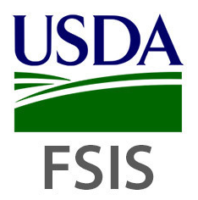Source: Reuters
Chinese meat company Shuanghui International's plans to buy U.S.-based pork producer Smithfield Foods Inc has some lawmakers worried the deal could create food safety issues for U.S. consumers.
Mostly silent after the deal was announced a week ago during a Congressional recess, lawmakers are taking a closer look.
Senate Agriculture Committee Chairwoman Debbie Stabenow, Democrat of Michigan, said on Wednesday that federal agencies considering the merger "must take China's and Shuanghui's troubling track record on food safety into account."
They must "do everything in their power to ensure our national security and the health of our families is not jeopardized," Stabenow said in a statement.
That concern stems from recent food safety issues at Shuanghui and in China. The company was forced to recall its Shineway brand meat products from stores two years ago amid fears that some of it contained a banned feed additive called clenbuterol - an incident referred to by Stabenow.
In China, there have been other incidents including thousands of pig carcasses floating on a river and milk tainted with the industrial chemical melamine that killed six and made thousands ill.
Senator Chuck Grassley, the top Republican on the judiciary committee, was one of the first to cast doubt on the Smithfield deal, and has said some Chinese food companies' tactics are unsafe.
The powerful Iowa senator is urging the Department of Justice to thoroughly examine the nearly $5 billion acquisition to protect competition in the pork industry.
"I am also concerned about the impact on consumer choice and the price of pork products," Grassley said in a June 3 letter to William Baer, assistant attorney general in the Justice Department's antitrust division.
PORK WILL BE EXPORTED, NOT IMPORTED
Virginia-based Smithfield is the world's biggest hog producer. Shuanghui controls China's largest meat processor.
In an emailed statement following Stabenow's remarks Smithfield said the proposed Shuanghui transaction was focused on exports of U.S. pork, not imports.
"The combined company will not import any product from China into the U.S. As a result, the proposed combination does not have any implication for the U.S. food supply," Smithfield said.
The company "will continue to adhere to the strict U.S. regulatory requirements," the company said.
Republican Representative Frank Wolf of Virginia called the deal "troubling" but would not elaborate on what he found troubling. Democratic Senator Tom Harkin of Iowa, the chairman of the health and labor committee, said it was important to safeguard workers and health standards.
"In the review of this proposed transaction, it must be shown that the deal will protect workers, food safety standards, and U.S. national interests," he said in an emailed statement.
Although Congress can not approve or block deals, lawmakers can kick up a fuss and even force companies to abandon their plans. They did so in 2005 when China's CNOOC Ltd made an unsuccessful bid to buy U.S.-based Unocal for $18 billion.
So far the angst in Washington seems below critical mass. Stabenow on Wednesday stopped short of calling for hearings on the deal, for example.
The Smithfield-Shuanghui deal will be scrutinized by a multitude of federal agencies, including the Department of Justice and Treasury's Committee on Foreign Investment in the United States (CFIUS), which reviews deals for national security concerns.
Sources familiar with the deal say a draft filing to CFIUS could be delivered within a week. The official filing would follow within five business days.
Food and Water Watch, a food safety group, has launched a campaign asking members of Congress to block the deal as a threat to national security and food security.
"The globalized food system poses real food safety risks and free trade deals with global partners encourage a race-to-the bottom in food safety standards," FWW's executive director Wenonah Hauter wrote in a blog post.

